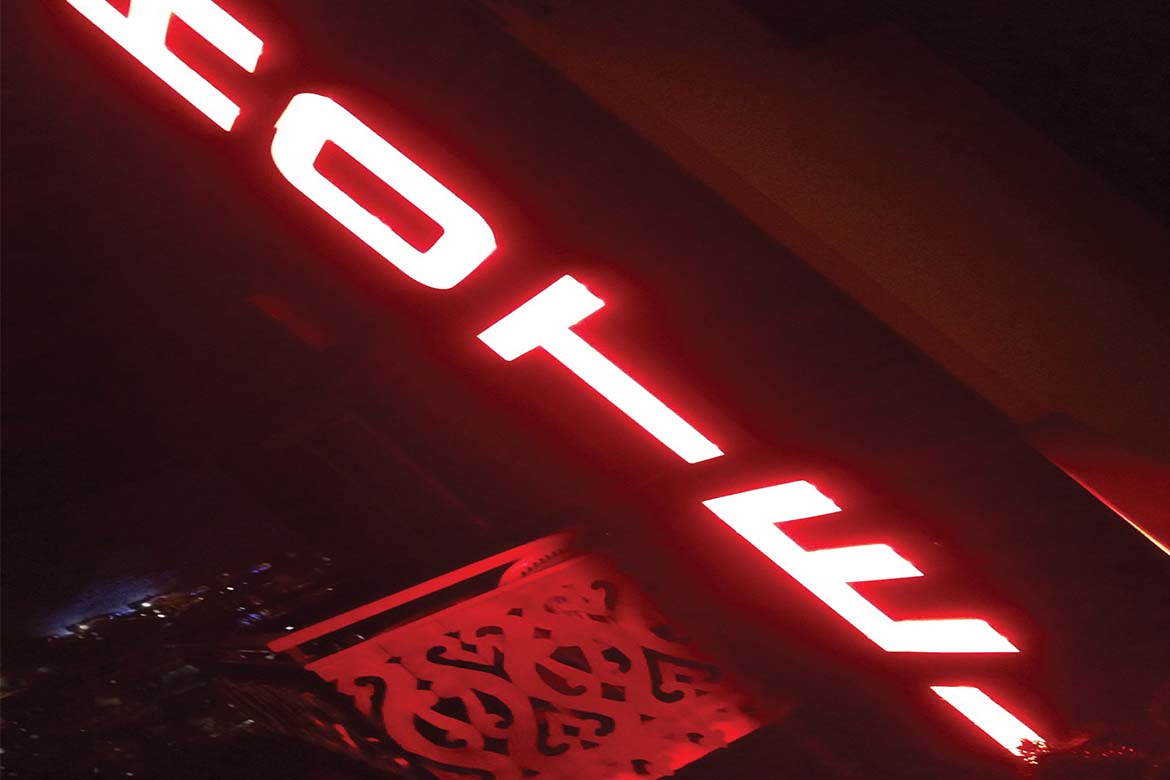Hotel security management
Events in the last twelve months have demonstrated to dramatic effect that terrorists are increasingly selecting soft targets to commit their atrocities. The reality is that these locations, which include hotels, holiday resorts and tourist areas, are hard to secure.
Hotel security management – the risks
Terrorists and other criminals exploit any weakness, with lone or small team attacks using well-planned tactics and weapons. Add to this the extensive media coverage that successful perpetrators receive, as well as the devastating effects on the country’s economy and a high-profile governmental response, and they make an even more attractive target.
Developing hotel security management
As a result, hotels are developing and improving systems for assessing risk and implementing security. It has always been a trade-off between what is needed and the cost of implementation. However, over the last decade, understanding has grown of why investing in this area is not only beneficial but can lead to more custom and profitability. The hospitality and corporate industry realises that doing nothing can be costlier than investing in security.
As travellers become more aware of potential risks, it is encouraging to see some hotels and resorts have responded to possible threats to their business, staff and guests by bringing in outside experts to test and advise on security shortfalls within their estates.
The main challenge, of course, is that hotels are public places: it is almost impossible to check every piece of luggage coming in and out. Coupled with this, hotel management does not want the hotel to look like a high-security prison. However, that said, as with many areas in life, “you get what you pay for”. In my view, 4 and 5-star hotels tend to have a better security and safety culture and invest more in this area. A number of chains realise the key to good hotel security is to have better trained staff who are security aware. Over the last few years, high-end hotels and resorts have prioritised this area and have commissioned me or others in my field to review, write and deliver hotel security awareness programs aimed at staff at all levels, as well as reviewing and practising response plans.
Hotel security management – staff vetting
A recurrent area of risk requiring attention is the staff vetting process. Hotels in general tend to rely on large numbers of agency staff to support the hotel functions.
This is a weak point within the hotel security process since some agencies do not vet or train their staff to the same standards as the hotel would itself. Furthermore, some hotels ignore the vetting and checks on staff being supplied. Although all hotels use agency staff at some point, the high-end hotels tend to have a better control and monitoring process for this.
Having the right security manager in place and having a clearly understood and implemented security policy is critical for a hotel group. For example, if a hotel manager wants to override a security manager’s decision or budget, this decision must go through an approval process from the hotel’s head office, so everybody is aware of the risks and mitigation that is required. Having a health and security culture at a hotel is critical and needs to be driven down from the top:
Hotel Security Management and Health and Safety
It is also clear that the corporate world must take more steps to protect its staff when they are out on the road. Of course, some organisations do this very effectively and have a comprehensive security and travel programme, but this is not yet true for them all.
As more atrocities take place against travellers, hotels and resorts with the resulting media coverage, the increasing pressure placed on governments and hotel companies will ensure that hotels continue to improve on overall safety and security.
Tips for Travelling Safely
Due to the nature of hospitality and hotels in general, there is no guarantee to safety. Below is a check list when travelling and staying in hotels and resorts:
- Where possible, choose a safe country/ region to stay. You can check the latest government travel advice for the destination country and region. See www.gov.uk/foreign-travel-advice
- If you can, choose a credible and well known hotel company with a central security and crisis team, as well as a localised department.
Check with the hotel / resort to see if they have:
- A dedicated security / safety department.
- A safety programme and if they can answer some basic safety questions (remember any security procedures and planning of worth will not be shared in their entirety for security reasons; this is a good thing and not a negative).
A personal view on choosing a hotel in a hostile environment
Although prominent hotels are likely to have a security department and robust risk planning, some international business travellers to hostile environments are choosing more modest hotels. The view is that a less prestigious hotel, possibly outside the city centre or at a distance from well-known and popular locations, will have fewer high-profile guests and western tourists, thereby making it a less attractive target.
Of course, this needs to be part of a full risk assessment and there is no fool-proof way of guaranteeing safety, but perhaps opting for a low profile hotel in high risk areas is a tactic worth considering while the threat remains high.
Darren Leigh MSyl
Managing Director, Twelve Nine Ltd.
A Specialist Security and Risk Consultant.


